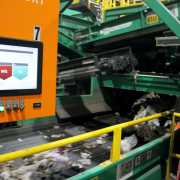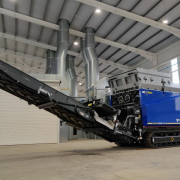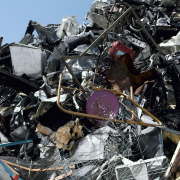EuRIC Textiles Event Gathers Over 130 Participants, Unites Key Stakeholders
On 21 November, EuRIC connected the knots in textiles, bringing together EU legislators, environment experts, leading industry figures and NGO representatives for an in-depth discussion on the challenges and opportunities in the EU’s textile landscape.
Kickstarting the event, Mariska Boer, President of EuRIC’s Textiles Branch, highlighted the need for comprehensive stakeholder collaboration to overcome the bottlenecks, such as insufficient collection, sorting and treatment of textile waste. In light of the Commission’s ongoing revision of the Waste Framework Directive (WFD), Aurel Ciobanu-Dordea, the European Commission’s Director of Circular Economy, highlighted that the EU will follow a bifold approach: i) a life-cycle approach and ii) a waste management one. Sanna Due, Circular Economy and Waste Management Expert at the European Environment Agency (EEA) unveiled findings from an ongoing EEA study indicating that the primary cause of clothes’ disposal is wear and tear, noting that this could indicate the potential advantages of the Ecodesign for Sustainable Products Regulation, anticipated to extend the lifespan of clothing.
A first panel discussion underscored the importance of speed, clarity and harmonisation as prerequisites for investment reassurance in recycling and for ambitious targets to achieve circularity in the EU. Enforcement of the legislation is essential, as according to the speakers, Member States might not be ready for all the legislation coming their way. The second panel focused on designing for circularity, advocating for a mentality shift and for increased recycled content, circular supply chains and consumers’ awareness. The speakers highlighted that the take-make-waste cycle does not work anymore and the reduce, reuse and recycle principles is the way to go. The event also featured two enlightening presentations, from Evelien Dils, (SCIRT), who presented on EU-funded
project and funding opportunities, and underscored the need for feasible recycled content, design requirements and interaction with consumers, and from Jérôme Pero, (FESI), who highlighted the potential of footwear in textiles circularity and the role EPR schemes could play in the EU.
Source: EuRIC (Brussels, November 22, 2023)







